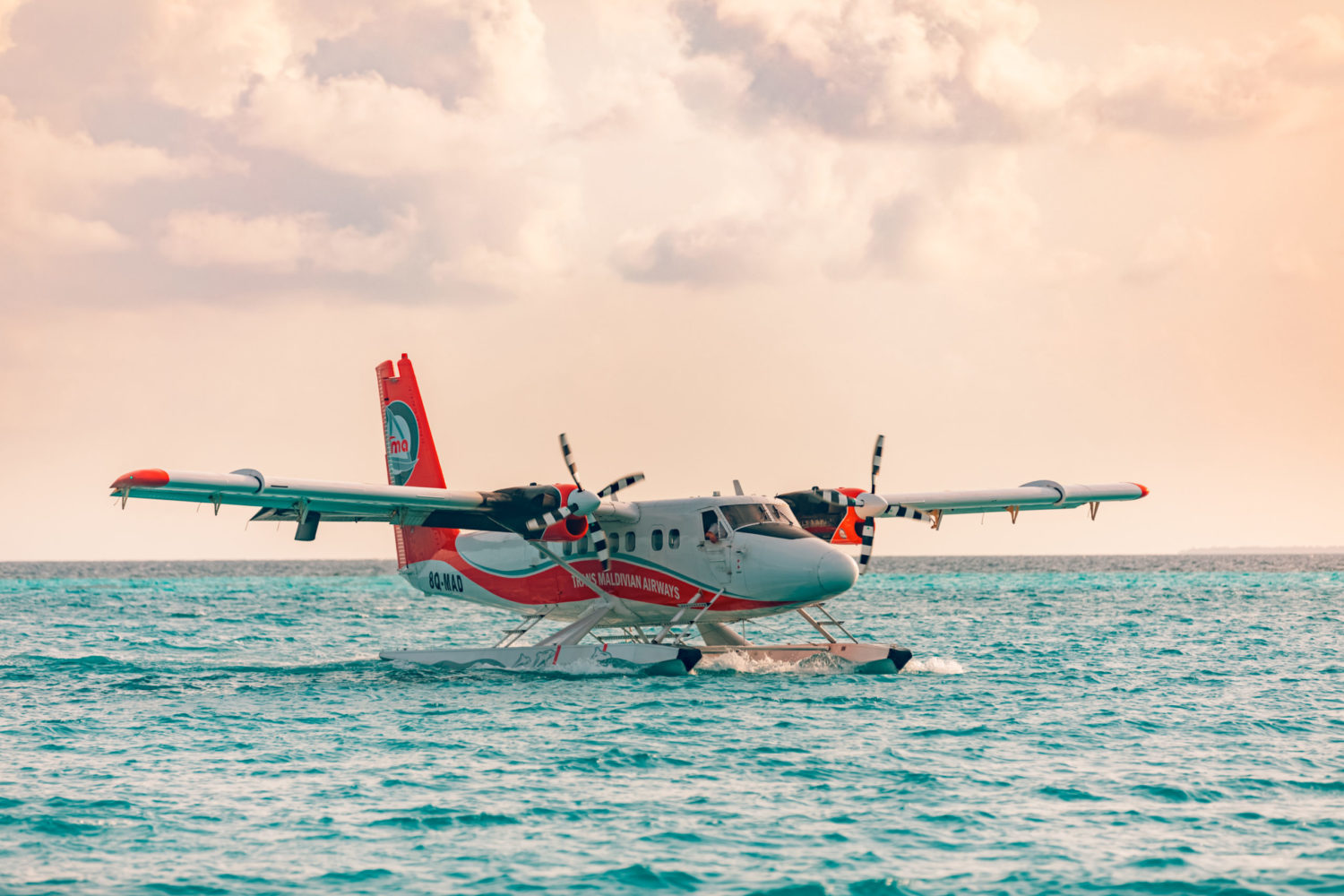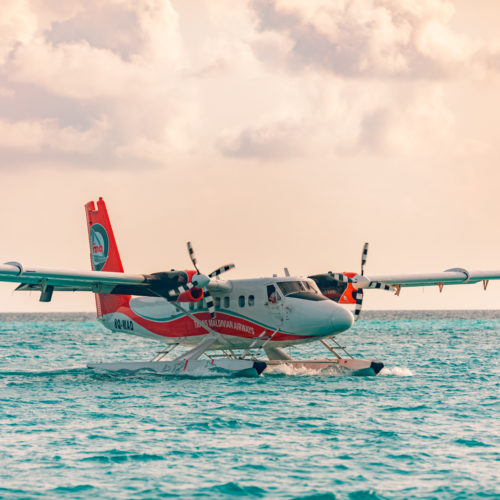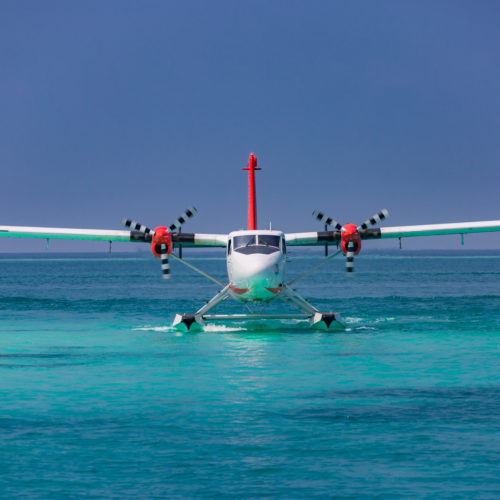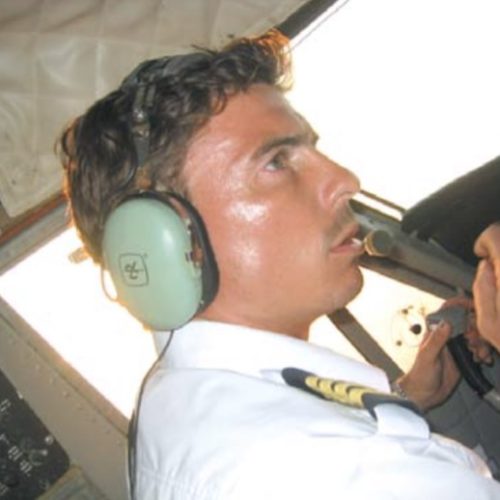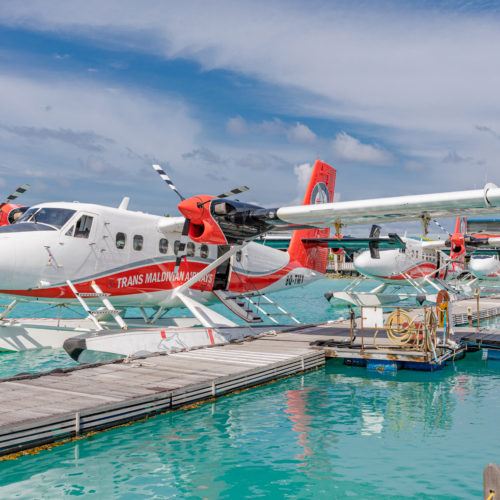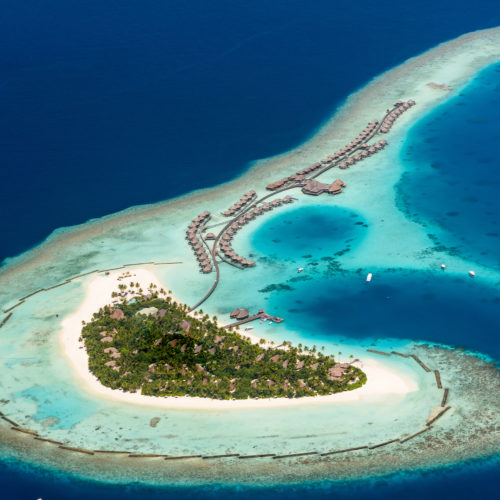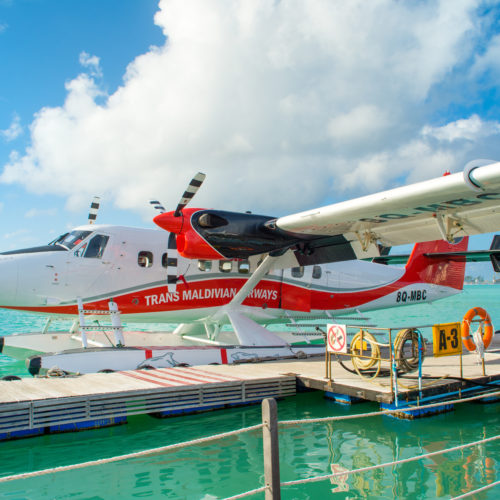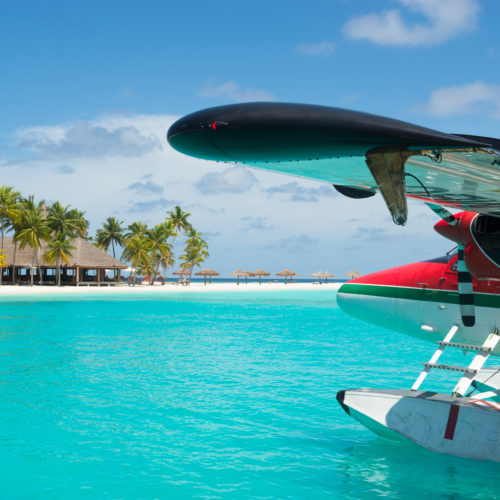“Flying is like a drug … there are always three or four minutes when you forget everything and you just think about the spectacle, the sky and the plane. It is magic. »Looking lost in the blue sky, David Amson enjoys his first takeoff of the day. A few moments of ecstasy before the technique and the radio on board took over. “Once on a cruise flight, you think about your problems, on a daily basis, on life in general, well like everyone else. Except that we are moving into another dimension and that we can think of all this in the sky “.
Sunday 7 am: rush hour in the Maldives …
David is an airplane taxi pilot. His daily life is made up of paradisiacal visions: atolls and deserted islands, turquoise lagoons and blue sky as far as the eye can see. Like his forty colleagues from the Trans Maldivian Airways (formerly Maldivian Air Taxi), he flies over sublime landscapes every day. However, after ten years of taking tourists to hotels lost in the Indian Ocean, the white sand beaches and translucent waters do not move him much. Being a taxi in paradise has become routine for him! Like every Sunday morning, the excitement in the hangar serves as the waiting room. Large transatlantic carriers have already dropped off their passengers at the airport, and flying taxis must now transport or bring back hundreds of customers to the paradise islands that made them dream on tourist brochures. Ironed white shirt, epaulettes at post, flip flops and Bermuda shorts, David is ready for his second rotation. His uniform looks a bit like that of Gopher, the Intendant of The Cruise is having fun … Yet he is not an operetta pilot. This morning, there are 6 rotations listed on his flight plan and he will go through difficult takeoffs and landings, slalom between the other aircraft and avoid the coral potatoes in the lagoons which serve as his airstrip. “The flying conditions are quite special here. The airspace around Male is saturated. There is not always radar control and there have been several times close to having accidents between Airbuses and small planes like ours “. But accidents are very rare, even if pilots regularly frighten themselves when they land in the open sea, near floating platforms that allow them to pick up passengers who have come by boat from islands whose lagoons do not allow landing.
“Last winter a platform fell apart. As we were picking up the passengers, we didn’t notice right away that we were drifting… Everything went very quickly and it was only a few meters from the reef that I noticed that we were moving. I jumped into the cockpit to go around. Seconds later, the aircraft’s floats were reportedly torn apart by corals and the aircraft could have sank. Two million euros would have gone to shreds: that was my greatest scare! “. “Flying is like a drug … there are always three or four minutes when you forget everything and think about nothing but the spectacle, the sky and the plane. ”
Legendary planes for seasoned pilots
David left Paris for more than 15 years to make his dream come true, to fly. In France, flight training was too expensive, he preferred to try his luck in Canada where flight hours are cheaper and where it is possible to work as a “bush pilot”, a bush pilot as the Anglo-Saxons have baptized these daredevils which fly in all weathers on little cuckoos capable of landing anywhere. After years of loading and unloading cargo planes in Canada’s far north, David obtained his business license and finally flew. Then, his journey resembles that of Dan Daguindeau, his co-pilot, or that of all his colleagues from Trans Maldivian Airways. The far North for a few more months, then Burma and finally the Maldives. Here, all the pilots fly on Twin Otters from De Havilland, mythical planes straight out of the 1960s and which can carry around fifteen passengers. With floats, wheels or skates, they land and take off in pocket squares. And in 40 degrees every day of the year, machines suffer like their pilots. “Even though it is really hot in the cockpits, these are not extreme working conditions for humans either, but it is very trying for the planes because of the corrosion, the salt, the sea. With the repeated shocks of the waterings, all the machines remain in the Maldives only two years before returning to Canada to be entirely refurbished ”.
Far from their country, from their family, often living together in apartments rented by their company, the pilots come to work here for the beauty of the landscapes, but above all for the salary. At least 6,000 dollars net per month for 6 working days and only one day off. Depending on the number of hours spent holding the handle, they will have additional days off. To ensure continuity of service without tiring the men too much, every three months, the pilots return to their native country for a five-week break. By dint of living on the waterfront in Malé, the smallest capital in the world whose main street is less than a kilometer long and where alcohol is prohibited for sale, for their holidays they often only dream of lively streets, restaurants, cinemas, in short, a return to civilization. Exactly what the tourists they carry year round flee to the Maldives to play luxury Robinson Crusoes in air-conditioned hotels with the latest amenities. But here, without the flying taxis, tourism could never have developed on a large scale. “The English travel light, the French lug around their wardrobe, and given the weight of their luggage, the Italians even have to take their bathroom sink! “
No plane, no tourists!
Seaplanes can reach remote islands of Male in less than 30 minutes, when several days of navigation would be required by boat. Created in 1993 by Danish pilots who fell in love with these lost islands, the Maldivian Air Taxi – former name of Trans Maldivian Airways – and its small red planes is now an essential link in the tourist economy. So much so that before investing in an island to build a hotel there, the large international hotel groups ask taxis for their advice on whether they can land in the lagoon. No plane, no tourists! Tourists who, while more and more come to discover the islands each year, are also increasingly busy. “The English travel light, the French lug around their wardrobe and given the weight of their luggage, the Italians even have to take the sink from their bathroom! “ As a result, the pilots are forced to fly with more kerosene, which results in an increase in prices which now hover around 150 euros for an inter-island transfer, which slightly increases the price of the ticket to paradise. Even though today more and more hoteliers are taking at least one round trip transfer to and from the hotel. “There is a maximum weight on these devices which is 6,000 kilos at takeoff. If tourists carry around with ever heavier bags and suitcases, we still try to stay within this limit, even if in air transport there is always a little cheating … But that’s normal, that is part of the game. Our passengers are there to relax and enjoy the scenery. As for us, we have to think about the company, about security and about business! “


